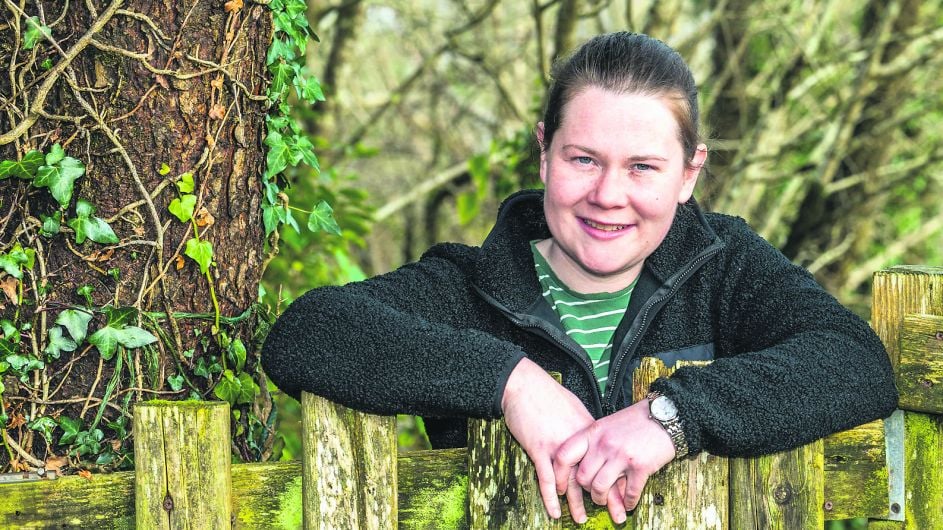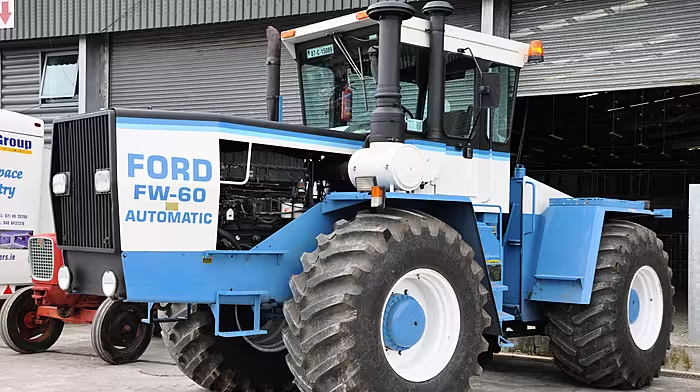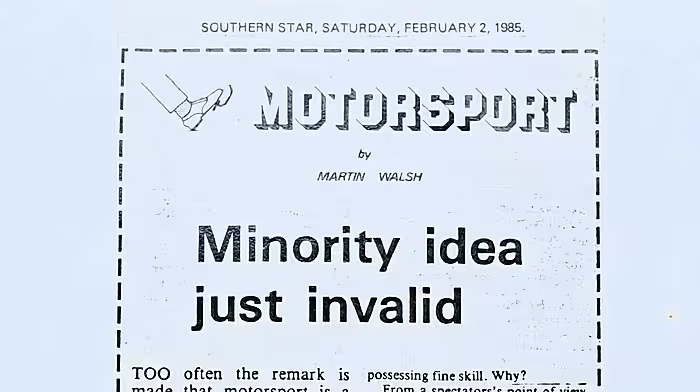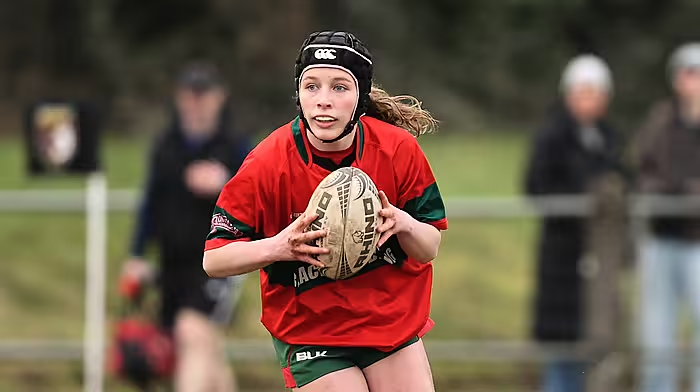A YOUNG Macroom woman was inspired by her entrepreneurial grandmother and her own strong business acumen to set up as a new entrant dairy farmer.
UCC Commerce graduate Celine Casey was reared on a traditional suckler farm but despite her heart loving the work, her head told her it wasn’t economically sustainable.
‘I couldn’t ignore the decreasing viability of the enterprise. There is a lot of work involved in sucklers with minimal returns,’ said the 27-year-old.
With a passion for dairy farming, she took the plunge and converted their farm in Glanmire last year, which has a milking block of 100 acres and where she milks 72 cows in partnership with her dad Tim. She’s relishing the challenge, which she combines with her job as a business, economics and maths teacher in Loreto Secondary School, Fermoy. Spare time isn’t something she has much of, but she’s surrounded by a supportive network including her mother Martina, a secondary school teacher in St Mary’s Macroom, and her sister Carol Ann, who is an avid horse woman.
‘I come from a family steeped in agriculture. My grandfather Raymond Murphy was a cattle dealer (Mishells, Bandon). My grandmother Mary Murphy (nee Neville), had a butcher shop in the square in Macroom and also farmed beef and sheep. Her family were also cattle dealers. She was a great inspiration to me and is one of the main reasons I was keen to keep my hand in agriculture. My dad is farming all his life, too, and is great to pass on his knowledge, and my partner Brian Lucey is also from a dairy background,’ said Celine.
After graduating with a first class honours degree from UCC, she worked as a data analyst for a year in Logitech in Cork and later tutored economics in UCC during which time she got her green cert from Darrara Clonakilty.
The enterprising young woman worked on several dairy farms and as a relief milker to pay for her professional masters of education to become a secondary school teacher. ‘From my experience working on dairy farms, I really developed a love of it and could see how it was viable. I could see great potential in the Glanmire farm as a dairy enterprise, as the yard is in a central location and it has excellent soil with good grass growing potential, so I decided to take the plunge!
‘Our milking block is approximately 100 acres with an additional outblock of 40 acres in Macroom which is used for rearing heifers/beef animals. We have a 12-unit parlour. I bought a new bulk tank (GEA), feeders, and meal bin. We invested in a dairy geyser to heat the water which was a great decision as it has reduced our electricity bills. We milked 68 cows last year and we will milk 72 this year.’
Celine got stuck in straight away and set rape last year which proved to be a great move.
‘The calved cows are grazing this by day and are given grass by night. They are milking very well from this and it is also a great way to get the cattle out without worrying about poaching.’
She also bought 15 Fleckvieh cross maidens which she will put in calf this year.
‘They are 50% Fleckvieh and 50% Friesian. They are a breed I am very interested in and I believe that the cross is the best option with the breed and they will have superior milk volume. I also had my first Fleckvieh calves this year from my own cows. I use AI and the stock bull only had to mop up a handful. We will have 35 replacements for next spring, so using milk recording results we will decide which cattle to cull and may increase the herd size slightly.’
Suffice to say this young woman has plenty of plans, but is aware of the challenges the sector faces.
‘Milk prices need to stay at their current level in order to make it viable. Fertiliser prices, ration and electricity are worrying, but so is the future of the Cap and I’d be fearful it could eventually be phased out.’
She’d like to see more females in the industry including at the marts, as department inspectors and also represented at co-op board level.
Land availability is another concern. ‘Purchasing land or leasing land has become very expensive and I believe it has locked out young people, like myself who are genuine farmers, from accessing land. I believe a retirement scheme for farmers should be reintroduced (there was one previously) as this could free up land but also give the retiring farmer an income source.’
Given her off-farm work, she has introduced a number of measures to help make time savings: ‘This year we installed a calving camera which has really helped. We also converted a shed closer to the dairy to a calf house which has reduced the walks to feeding calves, which is also great. But I think teaching works well with farming as you have good summer holidays which helps with silage season and you have structured work hours. I like the academics of teaching and then coming home to the hands-on farming. Teaching is also a great way of meeting people as farming can be very solitary. I’m very excited for the future.’










